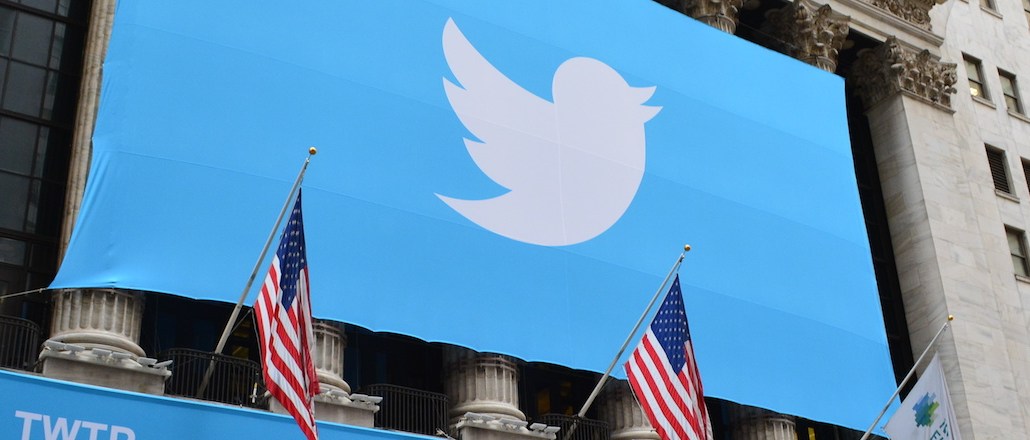
When Twitter announced Thursday afternoon that Dick Costolo would step down as CEO next month, Wall Street rejoiced. In after-hours trading, the stock jumped 7 percent Thursday.
But Madison Avenue was a little more cautious.
Costolo has steered Twitter for the last five years, but slowing user growth and feature failures made him a target for Wall Street analysts and shareholders. Chris Sacca, one of Twitter’s biggest shareholders, publicly called for a leadership change just last week.
That change has arrived, for now, in the form of Jack Dorsey, co-founder of the company, who will become interim CEO. But both Dorsey and Costolo said publicly that the recent criticisms had nothing to do with the leadership swap.
Indeed, Costolo was fairly well-liked by the agency set. Jason Stein, CEO of Laundry Service, said that his leadership had been “pretty flawless” when it comes to building a major global business and leading the IPO. Going forward, the major challenges for Twitter are growing users and improving ad campaign performance.
“It probably requires a visionary type of CEO, a Steve Jobs type” he said. “It can be very hard to focus on long term while your priority is IPO and making Wall Street happy, which is what had to be done.”
The Steve Jobs reference is telling, considering how Dorsey’s appointment as interim CEO parallels the trajectory of Jobs, who was ousted in 1985 and then returned to Apple in 1997. Dorsey co-founded Twitter and was CEO until 2008, when he was replaced. He returned to Twitter as executive chairman in 2011.
Most ad execs were happy with Costolo. Jordan Bitterman, chief strategy officer at Mindshare called him an “open and collaborative friend to Madison Avenue,” and points to how Costolo oversaw big-time acquisitions like Bluefin Labs, MoPub and Gnip as proof. “All of this has set up the plumbing to run a high-revenue business.”
Mike Margolin, who leads audience strategy at RPA, said that the Twitter sales team is among the best in the industry. What needs to happen now to solve the disconnect between Wall Street expectations and advertiser satisfaction is an improvement in user growth, he said.
So if a new CEO can accelerate growth and “lead the creation of sticky user experiences for new users, we’ll be eager to evaluate them,” said Margolin. “Perhaps the new CEO can accelerate the creation of new, killer reasons for your average person to use the platform that similarly leverage their unmatched interest graph.”
Bitterman calls it a mandate to increase Twitter’s relevance. “Both users and brands have had to operate within the rigid parameters of Twitter, which is essentially a world of at-mentions, hashtags and retweets,” he said. While the introduction of new features — like Cards, the rich-media feature that lets brands add lots more visual information to tweets — helps, Twitter needs more spaces worthy of consumers exploring, and therefore, more worthy of brands spending dollars.
There is no shortage of challenges facing Twitter’s leadership going forward. “Twitter will likely concentrate both on boosting their native video ads and integrating Periscope as a unique offering,” said Noah Mallin, MEC North America’s head of social. “Video is a major area that they have struggled to attract ad dollars in.” He added that those areas — Costolo oversaw the acquisition of Periscope — should continue to be a focus for new leaders, as should evolving the direct-response offering on the platform.
As for who will ultimately become CEO, ad execs say Adam Bain, chief revenue officer, is on the list of possibilities. Mallin said that that’s “for good reason,” and added that Bain has been especially “diligent” when it comes to agency relations.
Then again, there’s always this guy:
Im ready to lead @twitter !! #SnoopforCEO
— Snoop Dogg (@SnoopDogg) June 11, 2015
More in Marketing

WTF are tokens?
When someone sends a prompt or receives a response, the system breaks language into small segments. These fragments are tokens.

AI is changing how retailers select tech partners
The quick rise of artificial intelligence-powered tools has reshaped retailers’ process of selecting technology partners for anything from marketing to supply chain to merchandising.

YouTube’s upmarket TV push still runs on mid-funnel DNA
YouTube is balancing wanting to be premium TV, the short-form powerhouse and a creator economy engine all at once.





